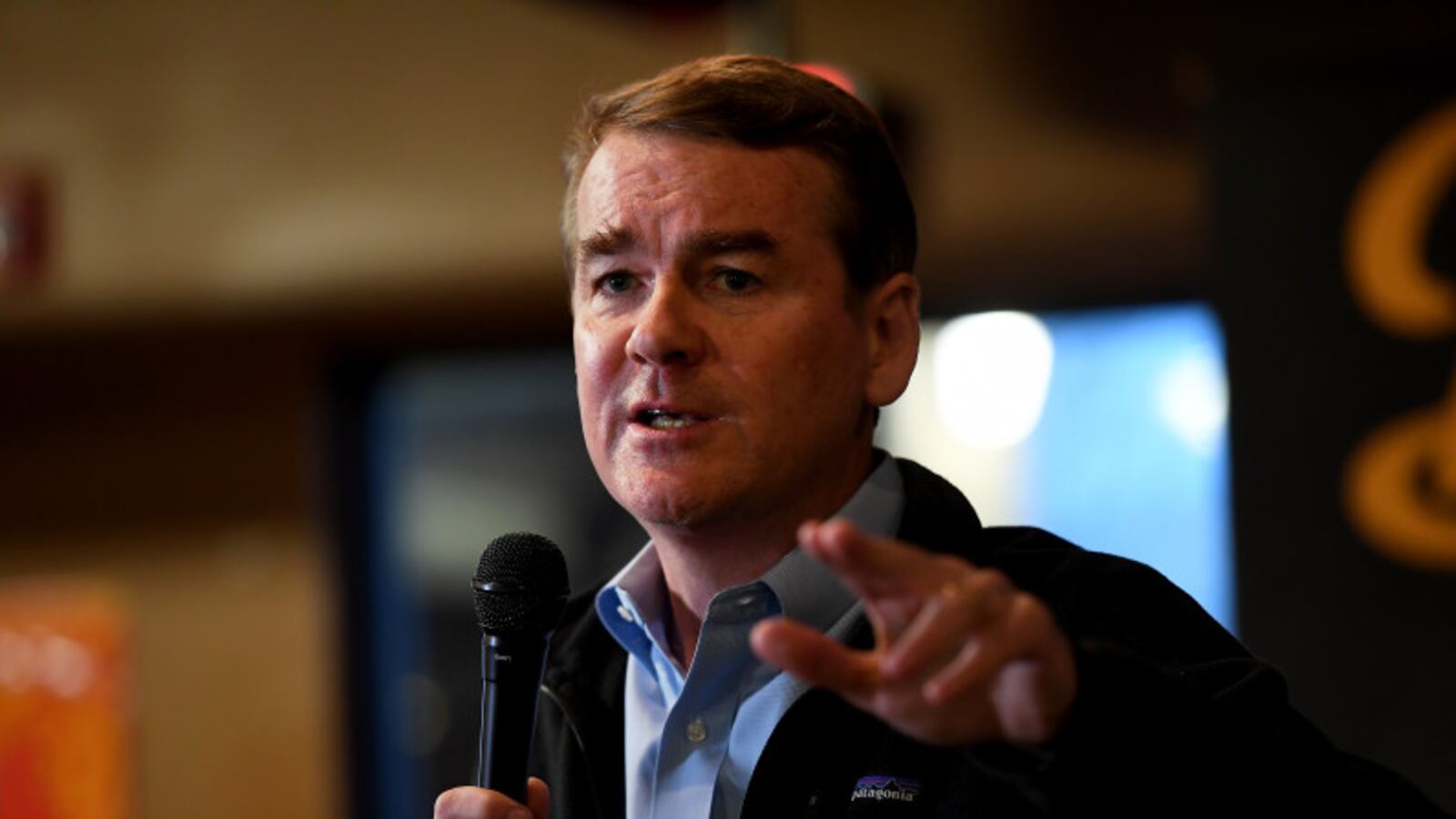The 2020 presidential race now has a former schools chief in the mix.
U.S. Sen. Michael Bennet, who oversaw Denver schools from 2005 to 2009, officially announced his candidacy Thursday on “CBS This Morning.” He enters the race with a complicated education legacy that is likely to draw fire from the left, even as he’s also been a fierce critic of conservative Education Secretary Betsy DeVos and her market-driven brand of education reform.
The 21st major candidate to enter the crowded Democratic primary, Bennet is pitching himself as a pragmatic centrist. And nationally, he may be best known for his work with the bipartisan “Gang of Eight” that crafted an ultimately unsuccessful immigration compromise in 2013. In Congress, he worked with Democrats and Republicans to usher in the Every Student Succeeds Act, the successor to No Child Left Behind.
But before he was a candidate for president, and before he was a U.S. senator from Colorado, Bennet led Denver Public Schools through a period of turbulent reforms that set the district on its current course, many of which remain controversial to this day.
Bennet’s Denver legacy: sweeping change for schools
When Bennet took the helm of the Denver school district, the district faced declining enrollment, appalling academic gaps between students of color and their white peers, and persistently low scores on state tests. A lawyer and investment manager with no prior experience in education, Bennet pursued a policy of aggressively closing low-performing and underenrolled schools, created the district’s own school rating system, revamped Denver’s merit pay system in a way that left many veteran educators feeling wronged, and allowed charter schools to use space in underused district buildings, a practice known as co-location.
No decision was more controversial or fraught than the one to close Manual High School, a northeast Denver institution with a storied legacy that had struggled immensely in the preceding decade. Bennet was attacked for ignoring the community’s wishes and inadequately planning for what would happen to hundreds of displaced students, many of whom would never finish high school.
After the election of Barack Obama, Bennet was on the short list for the education secretary job, but instead was appointed in 2009 to fill the Senate seat vacated by Ken Salazar, who became interior secretary.
By that time, some of his policy initiatives had already borne fruit in Denver. Three and a half years in, enrollment and test scores were both inching up. Some of his critics in Denver’s African-American community had come around, and The Denver Post editorial board wrote that his appointment in Washington was Denver’s loss.
Today, Bennet’s Denver record provides talking points
In Bennet’s recent visits to Iowa to test the waters for a presidential campaign, he touted his education experience and used the Manual closure as an example of his willingness to make tough decisions.
“I think we need an education president,” he told the Des Moines Register. “There’s no public good that’s more important than education.”
To this day, Bennet strongly defends the decision to close Manual. During a 2018 appearance in Denver, he described that as “a watershed moment” in the history of Denver Public Schools that “demonstrated that we were not going to settle.”
But for some, the wound has not healed. In April 2018, at the Colorado Democrats’ state assembly, a young Latina activist who attended Manual when it was shut down led delegates in a formal denunciation of Democrats for Education Reform and the reform agenda more broadly.
“When Manual shut down my freshman year, it told me education reformers didn’t find me worthy of a school,” Vanessa Quintana told the crowd.
And his changes to the ProComp merit pay system contributed to the discontent that led to this year’s Denver teacher strike, which drew national attention and support from other presidential contenders, like Elizabeth Warren and Bernie Sanders.
How will his education record play?
This history could be a problem for Bennet with some voters, particularly those on the left. U.S. Sen. Cory Booker, the other Democrat closely associated with education reform during his time as Newark mayor, has come under attack for a previously cozy relationship with Education Secretary Betsy DeVos and his praise for school vouchers, a policy opposed by most Democrats.
But Bennet isn’t chasing after voters who would take issue with his record as superintendent. He’s warned his fellow Democrats against being too ideological and has explicitly cast himself as a pragmatic moderate who works across the aisle to get things done. He’s twice won re-election in a purple state that also elected Republican U.S. Sen. Cory Gardner.
And he has offered strong public opposition to DeVos, a reviled figure among many Democrats.
On the floor of the Senate, he called her nomination “an insult to schoolchildren and their families, to teachers and principals, and to communities fighting to improve their public schools all across this country” and condemned a focus on choice and competition without a corresponding commitment to equity and quality.
He’s also rejected the idea that DeVos represents the face of education reform, calling her an ideologue who valued choice for choice’s sake during a Denver visit in 2017. He said it would be a “real shame” if schools moved away from reform because of DeVos.
“I know what our starting point was and I know where we are today,” he said of Denver’s reforms. “And I am the first to say we have a long, long way to go. We are certainly not perfect, we certainly made mistakes, but we’ve created a lot of opportunity for a lot of people.”
Chalkbeat reporter Melanie Asmar contributed to this report.

